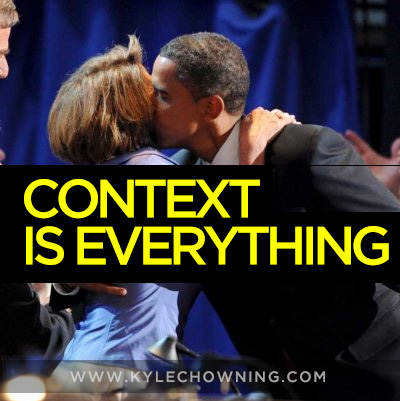 Saturday night, I sat in a room full of men who were ready to draft their perfect Fantasy Football team. I, being a rookie to the fantasy league, felt completely in the dark.
Saturday night, I sat in a room full of men who were ready to draft their perfect Fantasy Football team. I, being a rookie to the fantasy league, felt completely in the dark.
Let’s get one thing straight, I’m not a sports guy.
In high school, I was the kid that worked two jobs. While I enjoyed attending sporting events, it wasn’t about the love of the game, but the love of people.
I’m a social sports fan, at best.
Prior to this particular night, I was unaware of what roles made up a complete football team. And while I knew about tight ends, wide receivers, running backs, etc, how they contributed to the team was a mystery to me. I simply have very little education on the game of football.
When I signed up to participate in Fantasy Football, I was encouraged to “study” and do a couple mock drafts. Yeah, okay.
When I attempted to do a mock draft, I couldn’t make it through the first round. I didn’t get it. Having not watched a draft—ever—on TV, I couldn’t figure out what was going on and why things were happening the way they were.
I had no context, and because that was missing, the mock draft exercise had no meaning. As a result, I showed up to the draft completely unprepared. All I knew was that we would draft, and I’d figure it out as we drafted.
The first round of the draft was well underway, and I started to figure out what was happening. There was one thing that I didn’t understand: the flex position.
Apparently, in fantasy football, you need to draft a “flex” player; this could be a wide receiver, tight end or a running back, etc.
Having drafted most of my main players, I was staring at the need to select my flex player, so I thought I’d get some help. I tweeted:

Within a couple of minutes, I received two responses from friends:

Fantastic! I had a plan. Then I received these tweets:

My immediate response was, “What in the world did I say?”
Context is Everything
I quickly went back to read the tweet again, and I had to laugh. Out of the context of fantasy football, those same words meant something completely different. The laughter and teasing hasn’t stopped since.
A little word of advice: If you want people to understand fully, always consider context.
Sure, I know this isn’t new information, but it reminds us all that context is critical to communication. Without it, your messaging is vague at best, and most likely misunderstood.
Countless relationships have been damaged due to comments taken out of context. Even more dollars have been wasted from advertising and promotions that lack context, like this one:

What do you think this billboard ad is promoting? Taken literally, one could conclude that they are a bathroom cleaning company that provides twice-daily services. Would you believe that Twice Daily is a gas station convenience store? Now with context, the “clean restrooms” tagline makes sense.
Lack of context is the assumption of understanding.
As excellent communicators, we are required to leave no room for misinterpretation or confusion. Our job is to deliver a message that’s clear and concise. We are to assume nothing.
____________________________
I know I’m not alone—right?!? What’s your best out-of-context story?
